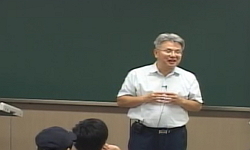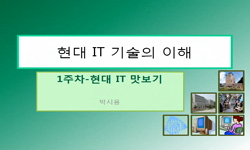The WTO members have recognized e-commerce issues related to the WTO and started to discuss in the first WTO conference in Singapore in 1996. The trade related issue of tariff on electronic transmission has been raised in the WTO by the United States ...
http://chineseinput.net/에서 pinyin(병음)방식으로 중국어를 변환할 수 있습니다.
변환된 중국어를 복사하여 사용하시면 됩니다.
- 中文 을 입력하시려면 zhongwen을 입력하시고 space를누르시면됩니다.
- 北京 을 입력하시려면 beijing을 입력하시고 space를 누르시면 됩니다.
https://www.riss.kr/link?id=T10032479
- 저자
-
발행사항
Seoul : Graduate School of International Studies Korea University, 2004
-
학위논문사항
Thesis(M.A.) -- Graduate School of International Studies Korea University , 전자통상학과 , 2004
-
발행연도
2004
-
작성언어
영어
-
주제어
WTO ; E-Commerce ; IT
-
KDC
309 판사항(4)
-
형태사항
57p. ; 26cm.
-
일반주기명
References: p. 52-54
- 소장기관
-
0
상세조회 -
0
다운로드
부가정보
다국어 초록 (Multilingual Abstract)
The WTO members have recognized e-commerce issues related to the WTO and started to discuss in the first WTO conference in Singapore in 1996. The trade related issue of tariff on electronic transmission has been raised in the WTO by the United States who has a vital interest in seeing that the internet is not over-regulated or overtaxed, but allowed to grow and develop at its own pace. A permanent stand-still on digital commerce was agreed to by all members. While the role of the WTO on e-commerce area is increasing as an important actor of global governance, the ability of the WTO has become questionable. Developed countries with far advanced technologies including the Unites States want to consider e-commerce on market principle that brought the e-commerce issues on the multilateral negotiation. They made member states to open their IT industries and its service sector including intellectual property rights. The WTO has sharply divided by each member country's national interest. I argue that the WTO serves developed countries interests, which are lobbied by transnational corporations (TNCs). Even though the WTO's decisions are made by the entire membership, so-called consensus, decisions are influenced and made by TNCs and advanced countries' interest because they are often the providers of services. In this case, the WTO is not a place for where member states come to adopt neoliberal polices but a place to decide what they want for their national interests.
목차 (Table of Contents)
- Acknowledgement
- Abstract = 1
- Contents = 2
- 1.Introduction = 4
- 2. E-Commerce Issues Related to the WTO = 7
- Acknowledgement
- Abstract = 1
- Contents = 2
- 1.Introduction = 4
- 2. E-Commerce Issues Related to the WTO = 7
- Taxation = 9
- Tariffs = 11
- Market Access = 12
- Jurisdiction = 14
- Privacy = 17
- Content Regulation = 19
- 3. E-Conmmerci Disussion in the WTO = 21
- Council for Trade in Goods = 25
- Council for Trade in Services = 26
- Council for Trade-related Aspects of Intellectual property Rights = 27
- Committee on Trade and Development = 29
- 4. E-commerce and Intellectual Property Rights in the WTO = 29
- Intellectual Property Issues Related to E-commerce = 29
- The WIPO and the TRIPS = 33
- 5. A Political Economy Explanation = 40
- Ideology of the WTO = 41
- Whose Interests the WTO Serve? = 43
- The North and the South Issues = 47
- 6. Conclusion = 50
- 7. References = 52












